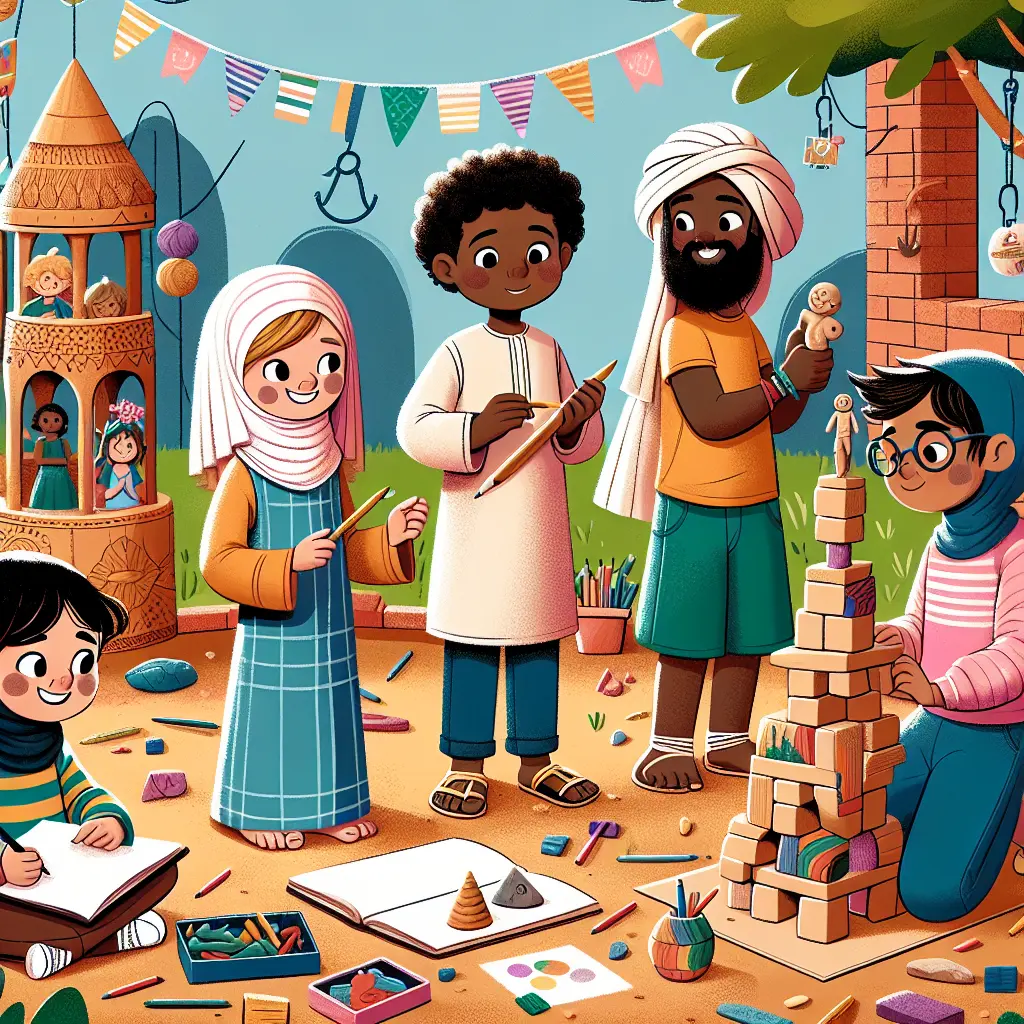
In today’s fast-paced world, the nurturing of creativity in children is more crucial than ever before. Creativity isn't just about the arts; it's a cognitive tool that helps in problem-solving, emotional expression, and even social interaction. As a society, we are recognizing the importance of creativity in children and are continuously looking for innovative ways to foster it. In this blog post, we will explore various dimensions and strategies for encouraging creativity in children, integrating creative activities and understanding their profound benefits.
Understanding the Importance of Creativity in Children
Creativity is not just an innate talent; it's a skill that can be developed. The importance of creativity in children cannot be overstated. It enhances mental growth by providing opportunities for trying out new ideas, and ways of thinking and problem-solving (Source: American Psychological Association). Creative thinking skills for kids are crucial as they prepare not only for a dynamic future but also help them in their day-to-day decision-making processes.
Creative Activities for Kids
Parents and educators can boost child creativity by integrating creative activities for kids into their daily routines. Art projects for children, for instance, are a fantastic way to encourage this. Simple activities like drawing, painting, or working with clay can significantly enhance their fine motor skills and cognitive abilities. Moreover, these activities allow children the freedom to express their feelings and thoughts in a non-verbal way, which can be particularly beneficial for those who find verbal communication challenging.
Recent News Influencing Creative Development
Creativity in children also gets a significant boost from exposure to various cultural and technological inputs. DC Comics recently announced "Batman & Robin: Year One," a series that not only entertains but also sparks imagination and inspires storytelling (Source: DC Comics). Similarly, technological advancements are influencing how we perceive creativity. Although Google’s AI Olympics ad faced some criticism, it shows the intertwining of creativity with technology, prompting discussions on creative ethics in the digital age (Source: Google Blog).
Boosting Child Creativity Through Play
Creative play ideas are essential in boosting child creativity. Structured play, such as building blocks, and unstructured play, like imaginative role-playing, can significantly enhance a child’s ability to think creatively and solve problems dynamically. Play allows children to experiment with different scenarios and outcomes, thereby enhancing their creative thinking skills.
The Benefits of Creativity in Childhood
The benefits of creativity in childhood extend beyond just immediate educational outcomes; they prepare children for future challenges. Creativity fosters mental growth by facilitating critical thinking and flexibility, making children better equipped to adapt to change and face new situations with confidence (Source: Harvard Graduate School of Education).
How to Foster Creativity in Kids
Fostering creativity isn't solely about providing materials or setting up activities. It's about creating an environment that encourages creative expression and thinking. Parents and educators should strive to provide a space where mistakes are seen as learning opportunities. Encouraging questions and allowing kids to make choices can also significantly promote creative thinking.
Creative Learning Activities for Children
Incorporating creative learning activities is another method to foster creativity in kids. Activities like storytelling, musical expression, or even digital game design can be highly effective. These activities not only keep children engaged but also help develop their cognitive and emotional skills.
Parenting Styles Influencing Creativity
Parenting styles also play a crucial role in encouraging creativity in children. Melinda French Gates highlighted how personal experiences with fellow parent MacKenzie Scott shaped their views on parenting creatively despite their unique challenges (Source: Personal Blog of Melinda French Gates). On the other hand, differing approaches such as gentle parenting and authoritative parenting offer varied impacts on child development, as discussed by various parents and educators (Sources: Various Parenting Blogs).
Challenges in Parenting Creatively
However, encouraging creativity is not without its challenges. Many parents feel the pressure to be perfect, leading to burnout. It’s crucial to acknowledge that seeking help and adopting flexible approaches can be beneficial. As one parent poignantly shared after losing his spouse, his parenting style evolved into 'whatever gets us through the day,' highlighting the adaptive nature of parenting (Source: Personal Stories from Parents).
Conclusion: Encouraging Creativity for a Brighter Future
Encouraging creativity in children is pivotal for their overall development and future success. By integrating creative activities into their daily routines, understanding the latest influences on creativity from news and cultural developments, and adapting our parenting styles to foster rather than inhibit creativity, we can provide our children with the tools they need to thrive in an ever-changing world.
As we conclude, let us remember that fostering creativity is not just about guiding our children to become artists or musicians but nurturing them to be innovative thinkers and problem solvers who are confident and capable of handling whatever life throws their way.
With creative wishes,
Miranda Fielding